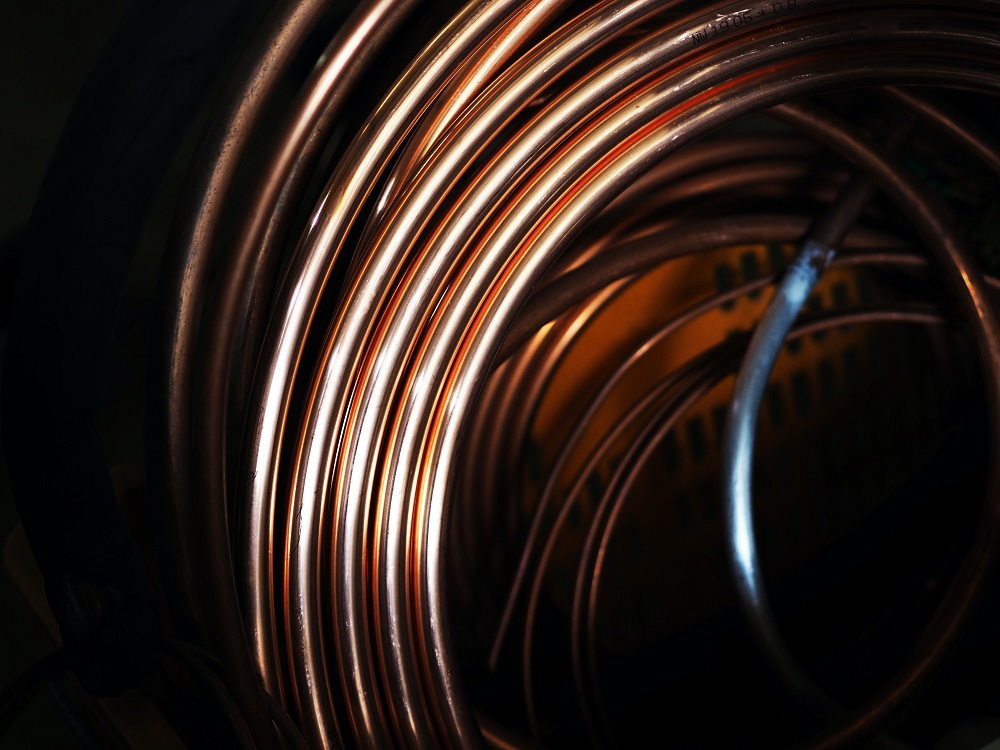
If ever there was a trend that demands attention then its the industrial one, with exposed copper pipes taking precedence as a must-have feature. But don’t be fooled, while copper pipework may look like it's been there for years with it’s established rustic charm, in actual fact keeping those pipes squeaky clean does require a little TLC.
So for copper pipework that is worthy of it’s show home status, keep reading for 5 simple steps on how to keep the tarnish at bay.
What Happens When Metal Tarnishes?
While the appearance of slightly tarnished pipework may complement your decor beautifully, it’s worth noting that an ongoing build up of residue could do more harm than good if left untreated. When metal is exposed to oxygen and sulphur in the air, a chemical bond occurs that reacts with the metal. This reaction causes a dull film on the surface which quite commonly turns black (or green when it comes to copper) and is what we mean by tarnish. Unfortunately, even with all the care in the world, this is a common occurrence, which is why proper cleaning is essential to the life of the pipework and of course maintaining the industrial appeal. So let’s jump straight in with a step by step guide.
Step 1 - Grab a bowl of warm soapy water and gently clean away any loose particles of dirt with a soft cloth. Then dry thoroughly with a seperate clean cloth.
Step 2 - If you have a designated metal cleaner to hand then apply it accordingly, making sure to adhere to the manufacturer's guidelines. If however, you don’t have any shop bought cleaner, then dig deep in your kitchen cupboards as there’s a lot to be said for home made remedies, such as:
Step 3 - Lemon juice and baking soda. Combine the two into a soft paste and apply the mixture to the pipework, leaving for approximately 10 minutes for best results. This simple combination causes a chemical reaction that will break down any unsightly tarnish to reveal beautifully restored copper in all its glory. Alternatively, another kitchen favourite is to mix up a tablespoon of salt, with a cup of the magic solution that is white vinegar, then apply as above. Both of these trusted remedies offer an acidic solution to break through the unwanted residue.
Top tip - If you prefer a slightly thicker solution then just add a spoonful of flour to thicken the mixture.
Step 4 - Wipe over the pipes with warm soapy water to remove any leftover solution then dry with a fresh clean cloth.
Step 5 - For any areas where tarnish still remains, simply take a wire brush to any stubborn particles, taking care not to rub too hard so as not to scratch the copper. Then repeat with the white vinegar or lemon juice solution if necessary. Et voila, beautiful pipework for all to admire!
Descaling Copper Pipes
If you live in a hard water area then you may be susceptible to a build-up of mineral deposits such as magnesium, potassium and calcium, otherwise known as limescale. You’ll notice this as a white substance that forms around your taps, sinks, plugholes and toilets, however, this kind of build-up is not common within copper pipes. There are however chemical treatments you can use that will clear them in the short term but this is not something you would do on a regular basis as you want to avoid contaminating your drinking water with unnecessary toxins. Therefore other solutions include:
Installing a water softener to treat the issue.
Using an acidic solution such as vinegar. You could either pump vinegar through the system then flush with clean water (Note, this could leave a slight vinegary taste for a while, but is much less harmful than a chemical flush), or remove the pipes and place them in a container of vinegar overnight for best results.
Replacing existing pipework with plastic pipes as this would completely eliminate the issue, but of course, this would not be as aesthetically pleasing as copper piping if this was the main design feature.
Looking for copper parts? Then take a look at our online selection of copper pipes, copper push fittings and copper end feed fittings. Alternatively, if you require any further information, why not give us a call on 01543 675 211, where our expert team is always on hand for help and advice, whatever your plumbing query!
 4.9+ Rating
4.9+ Rating 






